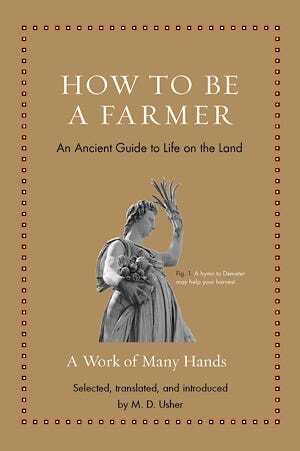Massimo Pigliucci's Blog, page 20
February 12, 2024
An example of Socratic ignorance
“Lysimachus and Melesias have invited us to discuss their sons, because they’re anxious for the boys’ characters to develop in the best way possible. So, what we must do, if we claim we can, is to point out to them teachers who are known firstly to have been upstanding men in their own right and to have cared for many young men’s characters, and secondly to have taught us also. …
I’ll be the first to explain my position, then, Lysimachus and Melesias, and I may say I’ve not had any instruction on...
February 9, 2024
There is no upside to anger
 Comedian Lewis Black always pretends to be angry, but he’s actually an incredibly nice person. Image from wbur.org.
Comedian Lewis Black always pretends to be angry, but he’s actually an incredibly nice person. Image from wbur.org.Anger is a big deal for the Stoics. Seneca wrote a whole book about it, and it is still just as good—if not better—than the advice you find on the anger management site of the American Psychological Association.
The basic idea is that anger is one of the pathē, or unhealthy emotions, as distinct from the eupatheiai, their healthy counterpart, an example of which would be love for th...
February 5, 2024
Cicero on good reasons for dying
“Cato left this world in such a manner as if he were delighted that he had found an opportunity of dying; for that God who presides in us forbids our departure hence without his leave.
But when God himself has given us a just cause, as formerly he did to Socrates, and lately to Cato, and often to many others — in such a case, certainly every man of sense would gladly exchange this darkness for that light.
For the whole life of a philosopher is, as the same philosopher says, a meditation on death.”...
February 2, 2024
Interview with a Cynic
 Statue of Diogenes the Cynic using a lantern to find an honest man with the aid of a dog. Image from davishighnews.com.
Statue of Diogenes the Cynic using a lantern to find an honest man with the aid of a dog. Image from davishighnews.com.You may noticed that we live in a world of extreme consumerism, where economists are finally beginning to take seriously the problem posed by so-called “externalities,” that is the costs and deleterious effects associated with the production of human goods. There is much talk, nowadays, of growing food locally because of the environmental degradation caused by global trade. And ...
January 31, 2024
Suggested Readings
 Woman with wax tablets and stylus (so-called "Sappho"), Naples Archeological Museum
Woman with wax tablets and stylus (so-called "Sappho"), Naples Archeological MuseumAlcibiades argued for libertarianism. In Xenophon’s Memorabilia Socratis, there’s an unusual mini dialogue, in which he portrays the young aristocrat Alcibiades using the Socratic Method against his guardian, the great Athenian statesman, Pericles. Pericles was the leading champion of the Democrat faction. Alcibiades seemed to want to embarrass the older statesman by catching him in a contradiction. His argument i...
January 29, 2024
Aristotle on the point of a human life
“Saying that ‘happiness is best’ is something manifestly agreed on, whereas what it is still needs to be said more distinctly. Now, perhaps this would come to pass if the work of the human being should be grasped. …
So whatever, then, would this work be? For living appears to be something common even to plants, but what is peculiar [to human beings] is being sought. One must set aside, then, the life characterized by nutrition as well as growth.
A certain life characterized by sense perception wou...
January 26, 2024
The Nazi problem, a Stoic take
 The Blues Brothers throw a group of Nazi off a bridge in the 1980 movie.
The Blues Brothers throw a group of Nazi off a bridge in the 1980 movie.Surprisingly, contemporary society seems to have a Nazi problem. I say surprisingly because you would think that, after World War II and the Holocaust, we would be done with that particular pernicious ideology. But, apparently, we are not.
From time to time, over the past several decades, both Germany and Italy have seen the occasional resurgence of overtly Nazifascist movements, sometimes in the form of violent protests enac...
January 24, 2024
Recommended Books

Brutus: The Noble Conspirator, by Kathryn Tempest.
Summary:
Conspirator and assassin, philosopher and statesman, promoter of peace and commander in war, Marcus Brutus (ca. 85–42 BC) was a controversial and enigmatic man even to those who knew him. His leading role in the murder of Julius Caesar on the Ides of March, 44 BC, immortalized his name forever, but the verdict on his act remains out to this day. Was Brutus wrong to kill his friend and benefactor, or was he right to place his duty to count...
January 22, 2024
Epicurus on pleasure vs pain
“Because of the very fact that pleasure is our primary and congenital good we do not select every pleasure; there are times when we forgo certain pleasures, particularly when they are followed by too much unpleasantness.
Furthermore, we regard certain states of pain as preferable to pleasures, particularly when greater satisfaction results from our having submitted to discomforts for a long period of time.
Thus every pleasure is a good by reason of its having a nature akin to our own, but not ever...
January 19, 2024
How to be a farmer like you mean it

[Based on How to Be a Farmer: An Ancient Guide to Life on the Land, by various authors, translated by Mark D. Usher. Full book series here.]
I have been covering the Princeton University Press brilliant ongoing series, Ancient Wisdom for Modern Readers, edited by Rob Tempio, for a while now. This is entry number 21, and I’m almost caught up with what they put out so far. (Of course, Rob taunted me recently by announcing four more titles for next year, to which I replied: yay!)
I have to admit, tho...



